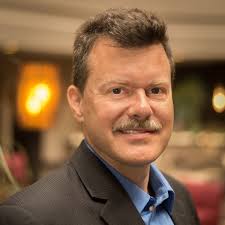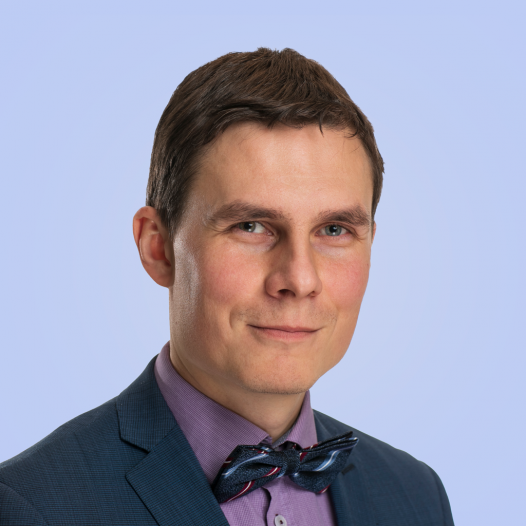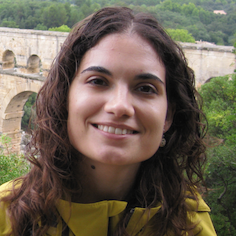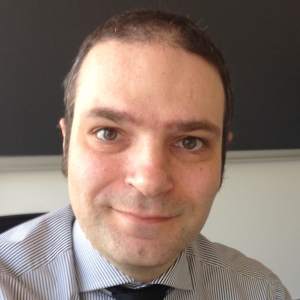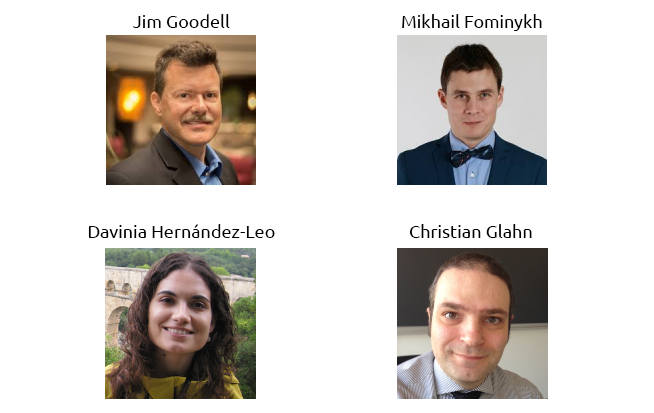
What do we mean with Learning Engineering & Technology-Enhanced Learning?
9 July 2020, at 14:00 CET
Dialog between Jim Goodell and Mikhail Fominykh,
moderated by Davinia Hernández-Leo and Christian Glahn
The fourth edition of the Webinar series is entitled “What do we mean with Learning Engineering & Technology-Enhanced Learning?”. An intersection of disciplines from educational/social sciences and technology/engineering domains has led to an interdisciplinary field of research and professional practice. Different names are being used to refer to this field, from educational and learning technologies to technology-enhanced learning and, more recently, learning engineering.
Technology-Enhanced Learning (TEL) was coined in the context of working groups initiated by the European Commission in 2000. The term is now broadly used to designate “a field of research aiming at improving learning by integrating current technologies and designing innovative ones” (Bourdeau & Balacheff, 2013) and has been adopted by the European Association in the field (EATEL), the well-established European Conference on Technology-Enhanced Learning (EC-TEL), or by the JTEL Summer School (JTELSS).
According to (Blake-Plock, 2018) “the term Learning Engineer dates back to at least 1966 when it was used by Herbert Simon, professor of computer science and psychology at the Carnegie Institute of Technology to describe a class of professionals who would be experts in designing learning experiences.” However, the term has recently gained more attention given the initiative starting in late 2017 by the IEEE IC Industry Consortium on Learning Engineering (ICICLE) to develop a profession within the field of engineering focused on the application of technology and learning science.
In the first part of the dialog, Jim Goodle (ICICLE) will elaborate on the term “Learning Engineering” and the current efforts by ICICLE towards a definition of the profession. Mikhail Fominykh (EATEL) will explain what we mean by TEL and the current efforts in Europe towards the training of future TEL researchers and practitioners. The second part of the dialog will consist of a ‘questions & answers debate’ by the two speakers, with participation of the audience. The dialog will be moderated by Davinia Hernández-Leo and Christian Glahn, both involved in EATEL and ICICLE.
Jim Goodell
Jim Goodell is a member of the ICICLE steering committee. He is co-author of Student-Centered Learning: Functional Requirements for Integrated Systems to Optimize Learning. He is a nationally recognized expert on education data standards and leader of standards development for the Common Education Data Standards (ceds.ed.gov). His work has led to greater coordination among key […]
Mikhail Fominykh
Norwegian University of Science and Technology, Norway
Mikhail Fominykh is a researcher, developer and enthusiast in the area of technology-enhanced learning. Mikhail is serving as a Secretary and as the Education chair in the executive board of EATEL from 2021 to 2025. Mikhail holds a researcher position in the IMTEL research group at the Norwegian University of Science and Technology – NTNU, […]
Davinia Hernández-Leo
Universitat Pompeu fabra, Spain
Davinia Hernández-Leo is a Full Professor at the Department of Information and Communications Technologies Department (DTIC) at UPF, the coordinator of the Interactive and Distributed Technologies for Education group (TIDE), Vice-Dean of the UPF Engineering School and the Head of its Unit for Teaching Quality and Innovation. She obtained a degree and a Ph.D on […]
